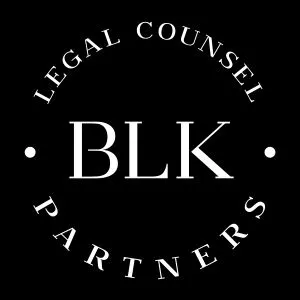- within Real Estate and Construction topic(s)
- with Senior Company Executives, HR and Finance and Tax Executives
- with readers working within the Banking & Credit, Retail & Leisure and Securities & Investment industries
The Saudi Arabian law governing non-Saudis' ownership of real estate, established by Royal Decree No. M/14 dated 19/01/1447 AH, represents a landmark reform and a pivotal component of the Kingdom's Vision 2030 initiative. This legislation goes beyond the mere authorization of property ownership and acquisition of real estate rights; it constitutes a comprehensive legal framework designed to attract foreign capital, stimulate sustainable investment, and foster a reliable and transparent business environment. It reflects Saudi Arabia's commitment to integrating into the global economic system and consolidates its position as a premier investment destination in the region and beyond.
Prior to this reform, foreign ownership was governed by the Non-Saudis' Real Estate Ownership Law of 2000 (Royal Decree No. M/15 dated 17/04/1421 AH), which imposed significant restrictions. Under that earlier regime, ownership was confined to narrow categories: non-Saudis could acquire real estate for private residence (subject to approval by the competent authorities), or licensed foreign companies could own property strictly for the purpose of carrying out their licensed activities in the Kingdom. Large-scale investment in real estate development, leasing, and resale was effectively excluded. Moreover, sensitive areas such as the holy cities of Makkah and Madinah were explicitly restricted, and the approval process for eligible ownership was often lengthy and discretionary.
Against this backdrop, the new law marks a decisive and unprecedented shift. It replaces a regime of limited, case-bycase exceptions with a structured, codified, and investment-oriented framework. Instead of restricting ownership to narrow circumstances, the law establishes clear pathways for individuals, companies, and investment institutions to participate in the Saudi real estate market under transparent rules, subject to regulatory safeguards. For legal practitioners and investors alike, this development represents not only a regulatory reform but also a fundamental shift in the Kingdom's investment philosophy.
One of the law's most striking features is its flexibility. It extends ownership opportunities not only to individuals but also to a wide array of legal entities, including companies, non-profit organizations, and other institutional vehicles as determined by the Council of Ministers. This inclusive approach enhances the market's attractiveness and positions Saudi Arabia as a compelling hub for international businesses and institutions seeking to expand or establish a longterm presence in the Middle East. Nonetheless, while the law is progressive, its application raises practical questions— particularly in distinguishing between real estate ownership as an investment and as a regulated commercial activity.
THE NATURE OF REAL ESTATE INVESTMENT: OWNERSHIP VS. COMMERCIAL BUSINESS
A central issue for investors is the legal distinction between owning real estate as an investment and engaging in real estate as a commercial business. Article 3 of the Investment Law provides guidance, stipulating that acquiring real estate for the purpose of selling or leasing constitutes an investment activity. This is consistent with the principle of freedom of investment, which grants investors the right to operate across sectors unless expressly prohibited. Since the "list of excluded activities" does not encompass buying, selling, or leasing real estate, these activities remain fully open to foreign participation.
This clarity is significant. It ensures that property ownership by non-Saudis—whether for capital appreciation, leasing income, or resale—is not treated as a prohibited activity but rather as an integral part of the Kingdom's investment landscape.
LEGAL ENTITIES FOR NON-RESIDENT COMPANIES: A FRAMEWORK FOR CREDIBILITY
The law also strengthens market credibility by offering clear legal guarantees to investors. In addition to defining geographical scopes and permissible real estate rights, the law creates distinct advantages for companies listed on the stock exchange and for investment funds, thereby encouraging institutional investment. Transparency is further reinforced through precise registration mechanisms with the Real Estate Registry, along with well-defined penalties for violations—collectively fostering a secure and trustworthy investment environment.
An important consideration, however, arises for non-resident companies wishing to own and lease property in the Kingdom. Current legal structures do not allow foreign companies to operate directly without establishing a local presence. Under the Companies Law (Royal Decree No. M/132 dated 01/12/1443 AH), a foreign company must conduct its business in Saudi Arabia through a branch or representative office, which entails forming a recognized legal entity within the Kingdom.
This requirement should not be viewed as a restriction, but rather as a safeguard serving multiple objectives:
- Investor Protection: Ensuring regulatory oversight, compliance with laws, and protection of stakeholders.
- Transparency and Accountability: A local branch or office provides a mechanism for legal review and corporate accountability, reinforcing market confidence.
- Sustainability: By requiring a local presence, the framework promotes long-term investment strategies rather than short-term speculative ventures, thereby supporting sustainable economic growth.
Far from being a mere procedural formality, this requirement reflects a deliberate legal philosophy: building a transparent, accountable, and enduring investment ecosystem aligned with the objectives of the Investment Law.
COMPANY REAL ESTATE OWNERSHIP: LICENSING AS A FUNDAMENTAL CONDITION
The ownership of real estate by companies for purposes of resale or leasing is classified as a commercial activity and therefore requires proper licensing. This conclusion flows logically from the National Guide to Economic Activities, which categorizes the buying, selling, and leasing of real estate as commercial economic activities.
In Saudi Arabia, the principle that no commercial business may operate without a license is firmly rooted in multiple regulatory instruments, including the Anti-Commercial Concealment Law and the Commercial Registry Law. As such, any company seeking to engage in these activities must fulfill the applicable licensing requirements. Not only does compliance secure legal standing, but it also reinforces market integrity, ensuring that all participants operate on a transparent and equitable footing.
CONCLUSION: TOWARD AN INTEGRATED INVESTMENT ECOSYSTEM
The law enabling non-Saudis to own real estate represents a qualitative leap in Saudi Arabia's investment environment. By balancing the imperative of national sovereignty with the need to attract and regulate foreign capital, the framework establishes a model that is both progressive and protective. It is an integrated solution that welcomes global investors while safeguarding the Kingdom's economic and social interests.
In this sense, the reform is not merely a regulatory development; it is a strategic statement. It underscores Saudi Arabia's confidence in its investment climate, its readiness to engage with global markets, and its determination to realize the ambitions of Vision 2030. The law is a cornerstone in building a dynamic, prosperous, and sustainable future for the Kingdom.
That said, proper legal structuring and a comprehensive understanding of the law's various aspects are essential. Careful legal planning ensures compliance, optimizes investment outcomes, and provides clarity on ownership structures, licensing, and operational requirements. Establishing the appropriate legal and business structures at the outset will be critical for investors to maximize opportunities under this new framework and to navigate the Saudi real estate market with confidence.
The content of this article is intended to provide a general guide to the subject matter. Specialist advice should be sought about your specific circumstances.



